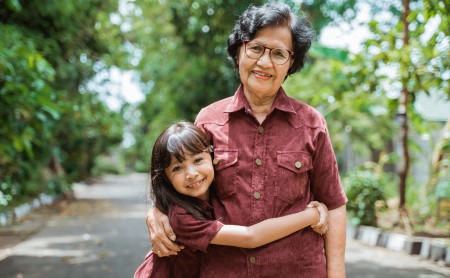The Children COVID-19 Left Behind: A Public Health Call to Action
October 27, 2021 | Lindsey Myers
 While continued improvement in COVID-19-related indicators gives us reason to believe the pandemic is taking a positive turn, a new study published last week in Pediatrics provided a harsh reminder that the consequences of COVID-19 are far from over.
While continued improvement in COVID-19-related indicators gives us reason to believe the pandemic is taking a positive turn, a new study published last week in Pediatrics provided a harsh reminder that the consequences of COVID-19 are far from over.
Researchers estimate more than 140,000 children in the United States experienced the death of a parent or grandparent caregiver between April 1, 2020 and June 30, 2021. The study highlights disturbing disparities in caregiver deaths by race and ethnicity. Hispanic, Black, and American Indian/Alaska Native children were at 1.1 to 4.5 times higher risk of losing a caregiver than non-Hispanic White children. These inequities result from structural and social conditions such as discrimination, living in under-resourced neighborhoods, barriers to accessing healthcare, experiencing food insecurity, and economic instability.
Last month, as the country reflected on the 20th anniversary of the Sept. 11 terrorist attacks, news stories highlighted the close to 3,000 children under 18 who lost a parent that day. Surviving children told heart-wrenching stories about how losing their parents impacted them and what helped them build resiliency. Philanthropic and government agencies rallied to support children who lost their parents in 9/11 with monetary resources and counseling services. Unfortunately, the same is not true for the 140,000 children who have lost a primary caregiver due to COVID-19. They are experiencing an already overtaxed behavioral health system, a mental health provider shortage, and fragmented community services that can be difficult to navigate, particularly in a pandemic.
COVID-19-related orphanhood is a major public health problem that cannot be ignored. Losing a parent or caregiver is an adverse childhood experience associated with mental health problems, shorter schooling, lower self-esteem, sexual risk behaviors, and increased risk of substance abuse, suicide, violence, sexual abuse, and exploitation.
Public health agencies can help create stable, nurturing relationships and environments for children by utilizing a population health approach to engage cross-sector partners, use data to drive efforts and monitor progress, foster resilience, and cultivate a trauma-informed workforce. Developing strong partnerships with education, Medicaid, behavioral health, churches, and community-based organizations is essential to aligning resources and actions that can help strengthen mental health services and supports for children.
As public health leaders start planning their COVID-19 recovery efforts, the authors of the COVID-19 orphanhood study propose adding a new pillar of emergency response, “Care for Children,” to support a three-pronged approach:
- Prevent deaths of parents and caregivers by supporting vaccine equity and by continuing essential public health mitigation efforts.
- Support family-based alternatives to care, such as kinship, foster care, or adoptive family care.
- Implement combined, evidence-based interventions that strengthen positive parenting, economic supports, and educational growth to protect children who have a surviving caregiver.
The children who lost a parent on 9/11 are proof that people who experience the death of a caregiver and other adverse childhood experiences can go on to thrive. There is a great need for public health to help lead coordinated efforts to identify children who have lost caregivers to COVID-19 and provide evidence-based support at multiple levels to build resilience now and in the future.